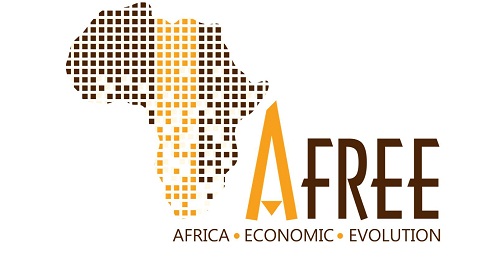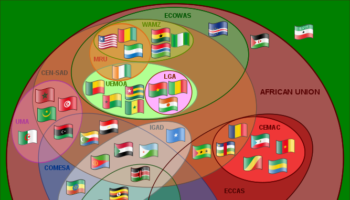Although it has abundant natural resources, Africa remains the world’s poorest and least-developed continent, the result of a variety of causes that may include corrupt governments that have often committed serious human rights violations, failed central planning, high levels of illiteracy, lack of access to foreign capital, and frequent tribal and military conflict (ranging from guerrilla warfare to genocide).[102] Its total nominal GDP remains behind that of the United States, China, Japan, Germany, the United Kingdom, India and France. According to the United Nations’ Human Development Report in 2003, the bottom 24 ranked nations (151st to 175th) were all African.[103]
Poverty, illiteracy, malnutrition and inadequate water supply and sanitation, as well as poor health, affect a large proportion of the people who reside in the African continent. In August 2008, the World Bank[104] announced revised global poverty estimates based on a new international poverty line of $1.25 per day (versus the previous measure of $1.00). 81% of the Sub-Saharan Africa population was living on less than $2.50 (PPP) per day in 2005, compared with 86% for India.[105]
Sub-Saharan Africa is the least successful region of the world in reducing poverty ($1.25 per day); some 50% of the population living in poverty in 1981 (200 million people), a figure that rose to 58% in 1996 before dropping to 50% in 2005 (380 million people). The average poor person in sub-Saharan Africa is estimated to live on only 70 cents per day, and was poorer in 2003 than in 1973,[106] indicating increasing poverty in some areas. Some of it is attributed to unsuccessful economic liberalization programmes spearheaded by foreign companies and governments, but other studies have cited bad domestic government policies more than external factors.[107][108][109]
Africa is now at risk of being in debt once again, particularly in Sub-Saharan African countries. The last debt crisis in 2005 was resolved with help from the heavily indebted poor countries scheme (HIPC). The HIPC resulted in some positive and negative effects on the economy in Africa. About ten years after the 2005 debt crisis in Sub-Saharan Africa was resolved, Zambia fell back into dept. A small reason was due to the fall in copper prices in 2011, but the bigger reason was that a large amount of the money Zambia borrowed was wasted or pocketed by the elite.[




